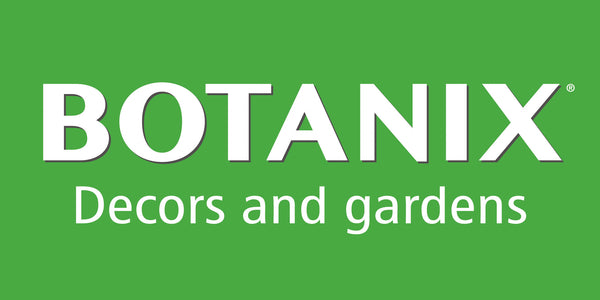To follow the aerial dance of a bird and to listen to its sweet song is pure joy! To enjoy this simple pleasure of life more often, create your own welcoming environment and make your yard and garden a haven for birds.
Even if the natural environment you've created is a paradise for birds, you can add commercial or artisanal accessories. If you're trying to attract a specific species, there are accessories specially-designed for the purpose. If you don't have a whole yard to work with, work with the space you have: a bird feeder and a saucer of water on a third floor balcony is enough to attract certain species.
Bird feeders
The ideal bird feeder is solid and easy to take apart and clean. And it should be waterproof so the seeds stay dry. Plastic feeders are not very resistant, and wood feeders only last a few years since untreated wood is very sensitive to humidity. Metal feeders are the best choice: they are sturdy and will last a long time.
Type of feeder | Birds | Features |
Tray feeder | Large birds Species that feed in groups Species that feed on the ground | Seeds are unprotected from bad weather and rodents. Feeder empties quickly. |
Feeder with controlled flow | All birds | Large seed storage capacity, requiring less frequent filling Seeds are released slowly Feeder is in the shape of a small house, so esthetically pleasing |
Silo feeder | Small birds | May be filled with several kinds of seeds, from sunflower seeds to thistle seeds Several models are available: metal without a perch, with a perch or with several small perches |
Square wire mesh feeder | All woodpeckers, blue jays, nuthatches, chickadees | Ideal for suet blocks, food for the winter |
Selective feeders | Gold finches, siskins, redpolls Cardinals | Specific to certain species: - Thistle feeder (very small openings for very pointed beaks) - Swinging perch |
Waterer with sugared water | Hummingbirds Baltimore orioles | Bright colour to attract birds With a mesh or mechanism to deter bees and wasps |
Maintenance
Every two weeks: remove droppings and soggy and rotten seeds.
Throughout the year: take apart periodically, clean with soapy water and disinfect.
Choice of seeds

Seeds | Birds | Comments |
Black oil sunflower seeds |
| Very nutritious The shells that fall on the ground attract squirrels |
Cracked corn |
| A favourite Also attracts other animals |
White millet |
| |
Canary seeds |
| Staple seed in bird feed mixes |
Safflower seeds |
| |
Thistle seeds |
| Feeders are designed specifically for these small seeds Seeds are more expensive |
Almonds
|
| |
Crushed peanuts |
| |
Wheat and barley seeds |
| |
Nuts |
| |
Suet |
| Food for the winter months |
You can provide seeds separately in different feeders or make your own mixes to attract particular bird species. Commercial mixes are not recommended since they tend to encourage waste: birds will toss out the seeds they don't like in order to eat the seeds they like!
Birdbaths

Birds love water! When they discover the water source you install for them, they'll be there daily to drink and bathe, preen and splash around. The birdbath can be either on a pedestal or hanging, in your yard or on your balcony.
- Pour in 2.5 cm of water.
- Add pebbles for birds with short legs.
- Clean and pour in fresh water two or three times a week.
Birdhouses
In Eastern Canada, there are only seven species of birds that will use nest boxes. In rural areas, the tree swallow, the purple martin, the eastern bluebird and the house wren can be enticed into a bird house. In the city, the black-capped chickadee, the house sparrow and the European starling will settle in nesting boxes.
When you go to buy or build a birdhouse, these are the features you should include:

- The entrance hole should be appropriate for the species you're trying to attract.
- Don't include a perch, in order to discourage predators from entering.
- Use high-quality wood that is naturally moisture-resistant, such as cedar. Avoid plastic or metal nest boxes since they can become too hot inside.
- Natural and light shades are preferable, since they don't retain heat.
- Interior dimensions should be appropriate for the species the birdhouse is intended for.
- The roof should have an overhang of 6 to 10 cm to protect the birdhouse from rain.
- It should have drain holes in the four corners of the floor to let moisture escape, and ventilation holes between the roof and the sides.
- It should be easy to open in order to clean.
To attract birds into your garden, you must first ensure that the area is safe for them. If stray cats and other predators are frequent visitors, your birdfeeders will remain untouched and your nesting boxes empty. However, if your yard is indeed bird-friendly, get ready to be charmed and entertained! Your new neighbors will be very thankful and fill the air with the happy songs of contented creatures.





